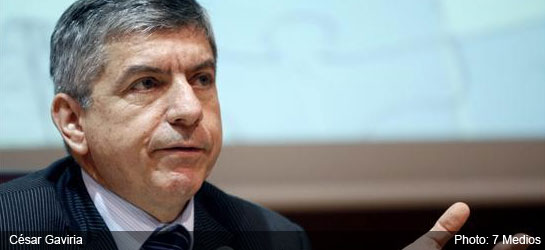
Former Colombian President Cesar Gaviria Tuesday admitted that it gave too much power to the president, while criticizing the possibility of presidential re-election.
Gaviria, who was in power between 1990 and 1994, oversaw the implementation of the 1991 constitution and firmly upholds its basic tenets. In guaranteeing “pluralism” and “political access” for all, he said, the constitution gave a “new political and social path to Colombia.”
Gaviria was succeeded by Ernesto Samper, who at the time said that the constitution had weakened presidential power. In response, Gaviria said that “when Uribe came to power — and governed as he governed — he demonstrated that this was not the case. I arrived at the conclusion that we left the president too much power, and not [too] little.”
In assessing the reforms over the last 20 years, however, the worst was unequivocally the re-election of former President Alvaro Uribe, according to Gaviria.
Gaviria argued that any discussion of re-election should not have been with one person in mind “because it had to be a general rule,” explaining that that was a reason he had opposed presidential re-election while he was president.
He warned that if presidential re-election is incorporated officially into the constitution, then there needs to be a system of checks and balances.
“It’s necessary that when the president is re-elected, he has limitations in the composition of the other public bodies…if this [re-election] rule is going to stay in the constitution please adopt this fundamental law,” he said.




